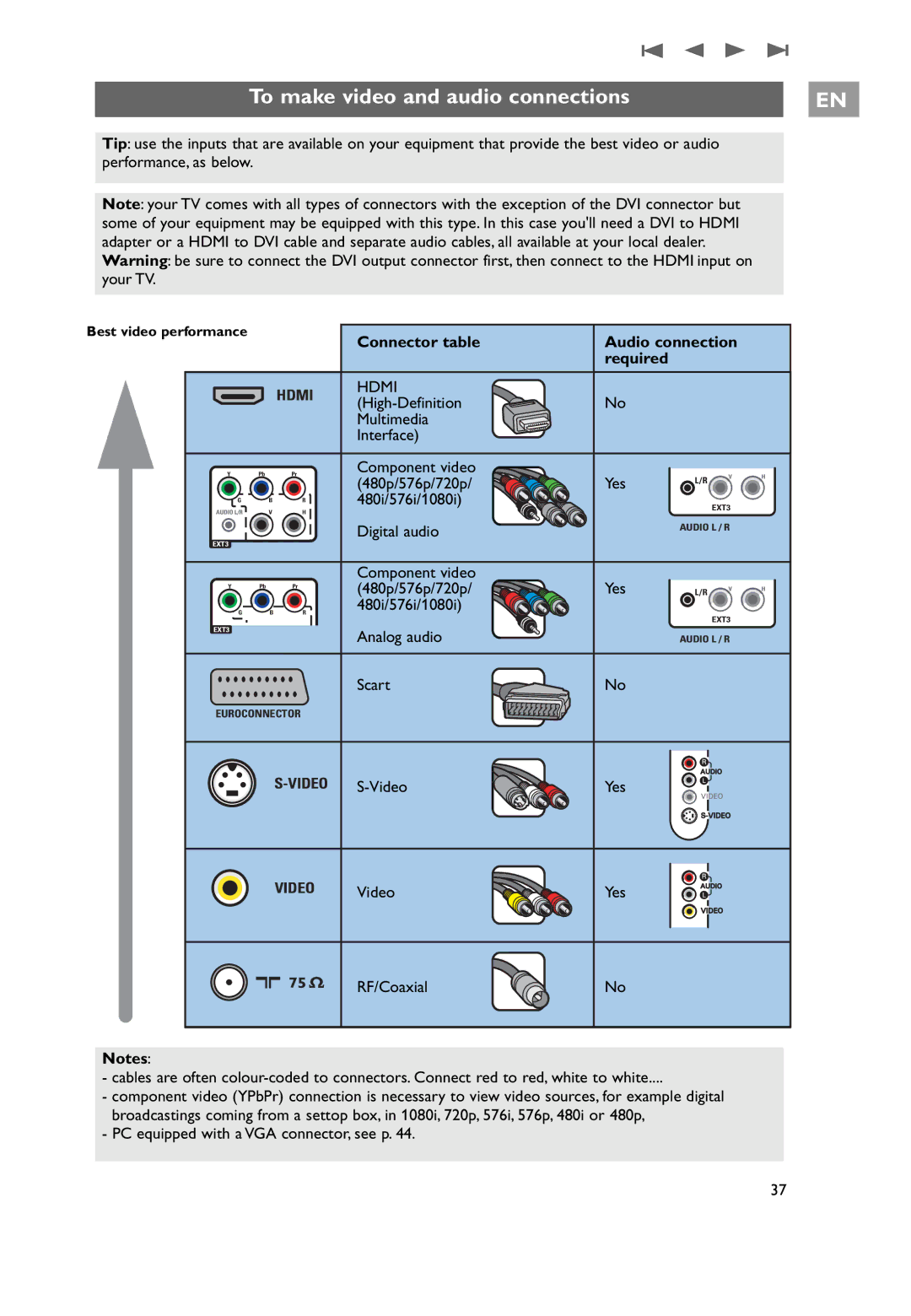
To make video and audio connections |
| EN |
|
|
|
Tip: use the inputs that are available on your equipment that provide the best video or audio performance, as below.
Note: your TV comes with all types of connectors with the exception of the DVI connector but some of your equipment may be equipped with this type. In this case you'll need a DVI to HDMI adapter or a HDMI to DVI cable and separate audio cables, all available at your local dealer.
Warning: be sure to connect the DVI output connector first, then connect to the HDMI input on your TV.
Best video performance |
|
| Connector table | Audio connection |
| ||
|
|
|
| ||||
|
|
|
| required |
|
|
|
|
| HDMI | HDMI |
|
|
|
|
|
| No |
|
|
| ||
|
|
|
|
|
| ||
|
|
| Multimedia |
|
|
|
|
|
|
| Interface) |
|
|
|
|
Y | Pb | Pr | Component video |
|
| V | H |
|
|
| (480p/576p/720p/ | Yes | L/R | ||
|
|
|
|
| |||
|
|
|
|
|
| ||
G | B | R | 480i/576i/1080i) |
|
| EXT3 |
|
|
|
|
|
|
| ||
AUDIO L/R | V | H |
|
|
|
| |
|
|
|
|
| |||
|
|
| Digital audio |
| AUDIO L / R |
| |
EXT3 |
|
|
|
|
|
| |
|
|
|
|
|
|
| |
|
|
| Component video |
|
|
|
|
Y | Pb | Pr | (480p/576p/720p/ | Yes | L/R | V | H |
|
|
| |||||
|
|
|
|
| |||
G | B | R | 480i/576i/1080i) |
|
|
|
|
|
|
| EXT3 |
| |||
|
|
|
|
|
|
| |
EXT3 |
|
| Analog audio |
| AUDIO L / R |
| |
|
|
|
|
| |||
|
|
| Scart | No |
|
|
|
EUROCONNECTOR |
|
|
|
|
| ||
|
| Yes |
|
|
| ||
|
| VIDEO | Video | Yes |
|
|
|
|
| 75 | RF/Coaxial | No |
|
|
|
Notes:
-cables are often
-component video (YPbPr) connection is necessary to view video sources, for example digital broadcastings coming from a settop box, in 1080i, 720p, 576i, 576p, 480i or 480p,
-PC equipped with a VGA connector, see p. 44.
37
